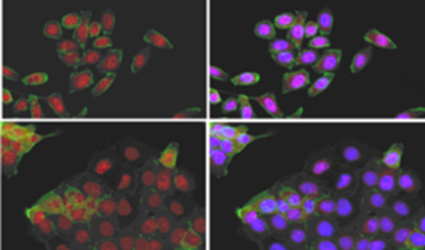Silencing Protein could Enhance Immunotherapy Efficacy in Cancer Tumors
August 2, 2018
Source: MedicalXpress
 1,080
1,080

Silencing an earlier known protein could hamper tumor development and increase the efficacy of immunotherapy treatments, researchers discovered at the Bloomberg~Kimmel Institute for Cancer Immunotherapy in the Johns Hopkins Kimmel Cancer Center.
The study was published in the Journal, Cancer Discovery on June 15, 2018.
Scientists used mice genetically mutated to lack Yes-associated protein, or YAP in numerous T-cell populations, including regulatory T-cells, known as Tregs, to explore the role of YAP, in T-cells in cancer patients.
Tregs prevent autoimmune diseases but can be a key impediment in the development of immune responses to tumors and immunotherapy. YAP is present in a subdivision of those regulatory T-cells.
Scientists examined the antitumor effects of YAP inhibitors singularly and in amalgamation with immunotherapies. Their heartening results revealed YAP is significant in the diminution of antitumor immunity by Tregs and confirmed by dimming YAP's capabilities, tumor destruction with less controlled immune cells is possible.
Fan Pan, M.D., Ph.D., senior author of the study and associate professor of cancer immunology, said, “Blocking YAP or the signaling pathways under its control boosted the effects of both a tumor vaccine and a checkpoint inhibitor (anti-PD1 antibody) to produce even stronger antitumor activity. He said the approach of therapeutically targeting YAP was effective over a broad scope of cancer types in mice.”
As Tregs are infamous for hampering the efficiency of tumor-targeted immunity in cancer patients, this study's finding may lay the foundation for a novel and capable strategy to release the patient immune response from the oppressive hold of suppressor cell control.
By DduRead more on
- Things to Know before Buying Newborn Baby Incubators March 31, 2022
- CRUK researchers develop new early-stage rectal cancer treatment December 12, 2020
- Highly Resistant Food Poisoning Bug Responds to Antibiotics September 6, 2018
- Smartphone Based Diagnosis to Identify Mosquitoes Transmitting Infection September 5, 2018
- 3 Natural Plant Extracts Manufacturers on Drugdu.com September 4, 2018
your submission has already been received.
OK
Subscribe
Please enter a valid Email address!
Submit
The most relevant industry news & insight will be sent to you every two weeks.



